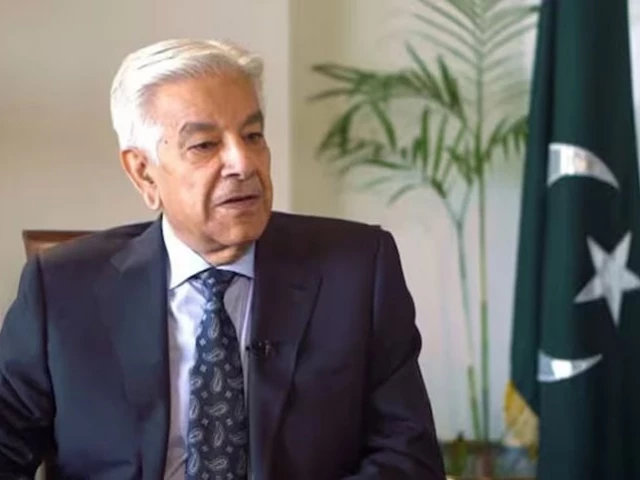Khawaja Asif says both countries are committed to fighting militancy for lasting regional peace
Pakistan and Afghanistan have reaffirmed their commitment to working together to combat terrorism along their shared border, signaling a renewed effort to stabilize a region long plagued by militancy and mistrust.
Defense Minister Khawaja Asif, in an interview with Al-Jazeera Arabic, said both countries recognized terrorism as the main obstacle to peace and progress. He explained that recent discussions between the two sides focused on creating a sustainable framework for security cooperation, aimed at eliminating groups responsible for cross-border violence.
Read: Saudi Arabia supports truce between Pakistan and Afghanistan
During the meeting, he said, the Afghan Defense Minister also acknowledged that terrorism remains the main source of tension between Islamabad and Kabul and both governments must act decisively to neutralize the threat. This agreement, he said, reflects a common recognition that regional peace cannot be achieved without a coordinated approach to countering extremism.
Preparations are underway for a key meeting in Istanbul next week, where officials are expected to finalize details of the new deal. The agenda would include intelligence sharing measures, joint border surveillance and a structured mechanism to ensure compliance with ceasefire commitments.
Learn more: Pakistan, Afghanistan agree to immediate ceasefire during Doha talks
Asif expressed optimism that once the terrorism problem is resolved, broader cooperation in trade, transit and infrastructure development will follow. He noted that stabilization of the border would pave the way for Afghanistan to resume trade activities through Pakistani ports, which would benefit both economies and promote mutual interdependence.
This renewed commitment also comes amid persistent security concerns in border areas, where militant activities have often derailed diplomatic progress. This latest initiative marks a significant attempt to move beyond sporadic talks towards a long-term strategic partnership based on security and economic cooperation.
Although the success of this effort will depend on the ability of both countries to implement and follow through on their commitments, the upcoming Istanbul meeting is seen as a potential turning point. Analysts say that if the deal translates into concrete actions, it could not only improve bilateral relations but also strengthen broader regional stability that has remained elusive for decades.




